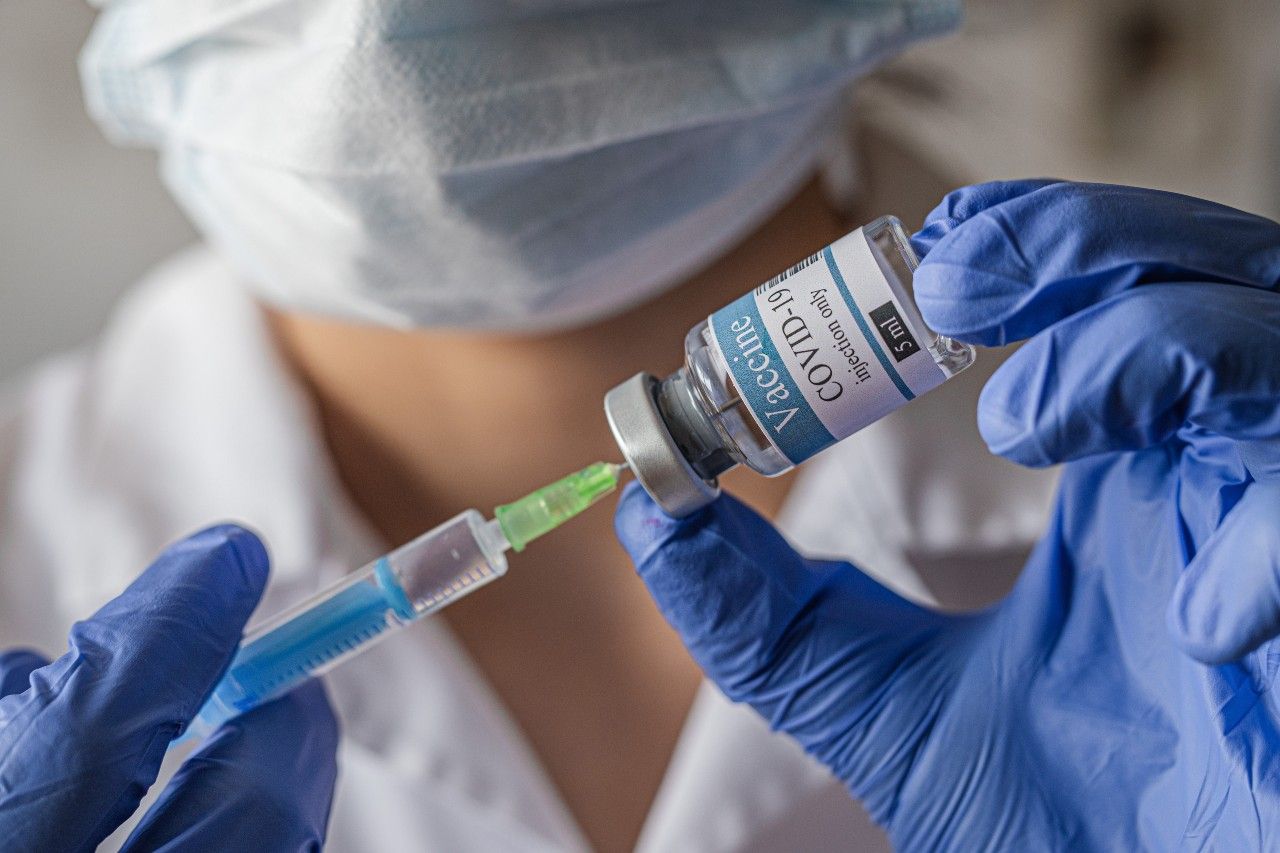Vaccines against COVID-19 have been available to most Americans since earlier this year, and many areas in the country are reporting that 70% of adults have received at least one dose.
But there is still some confusion and mixed messaging about the vaccines, who should get vaccinated and whether they’re safe for people who are undergoing treatment for cancer.
It’s important to note that, with both COVID-19 and the vaccines designed to fight the virus, experts are still conducting research and learning more every day. Unlike other viruses that have been around for decades, COVID continues to evolve, as does the research about how effective the vaccines are in protecting people against new or recurring cases.
Please note: patients who received the vaccine at Roswell Park are able to access their vaccine information and print it from the MyRoswell patient portal.
Here’s what we know.
Q: If I have already had COVID, do I need to get a vaccine?
A: In most cases, if you've had COVID, you'll be protected against that same strain of the virus for some period of time. The antibodies against COVID that your body made are considered a “natural” immunity and should be enough to protect you against a second infection if you are exposed to the same strain of the virus in the future.
However, you won’t necessarily have the same level of protection against mutated strains of the virus that may emerge as COVID continues to circulate worldwide in vulnerable populations. As a result, even if you've already had COVID, you should still strongly consider getting vaccinated so you'll have the most complete protection possible.
Q: How is protection against COVID different if it comes from a vaccine?
A: Unlike the "natural" immunity you get from previously being infected with COVID, the three COVID vaccines that have received emergency use authorization from the FDA — Pfizer, Moderna and Johnson & Johnson — also seem to provide good protection against the variant strains that have been cropping up since the pandemic started in early 2020. People who were infected with COVID have developed antibodies to fight the strain of COVID they had, but their protection against the variant strains might not be as strong.
Q: If I get a vaccine, will I need a booster?
A: As of June 2021, there's no evidence that the people who participated in the early vaccine trials have experienced a decrease in immunity against COVID-19. Based on that information, experts say there is no indication that people who are vaccinated will need a booster vaccine within a year — and the protection could last even longer.
But the knowledge we have about the efficacy of the vaccines is based on what we have learned so far, explained Katherine Mullin, MD, former Director of Infection Control and Prevention at Roswell Park Comprehensive Cancer Center. “This initial clinical trial group did not look specifically at participants who may have more fragile immune systems, so we will have to wait for information from the follow-up vaccine clinical trials about those participants to get a better understanding of how they will respond,” she adds.
Q: I’m fighting cancer and was infected with COVID. Can I get the vaccine? Should I?
A: The National Comprehensive Cancer Network recently released guidelines stating that cancer patients should get vaccinated unless their doctors advise them otherwise. “However, due to early reports of less vaccine efficacy in cancer patients, patients and close contacts should continue to wear masks, maintain social distancing guidelines and follow other recommendations for COVID-19 prevention even if vaccinated,” the NCCN says.
Adds Brahm Segal, MD, Chair of the Department of Internal Medicine and Chief of the Division of Infectious Disease at Roswell Park, and Co-Leader of the NCCN COVID-19 Vaccine Advisory Committee, “We want to reinforce that the decision to get vaccinated against COVID-19 should be something that isn’t scary or confusing for people with cancer. The members of this NCCN committee have devoted our lives to studying how to reduce infectious diseases and improve outcomes in people with cancer. I personally was happy to get whichever vaccine was first available to me; we want our loved ones, patients and community at large to have that protection, too.”
Q: No one in my family is fighting cancer, and none of us had COVID. Why should we get the vaccine?
A: “Think about smoke detectors,” Dr. Mullin said. “You have them in your house not because you have a history of your house burning down, or because you know it will someday. You have smoke detectors in your house because if a fire did break out, you’d want the smoke detector to alert you quickly so you could escape.”
Additionally, the vaccine isn’t to protect just the person who gets vaccinated. Some people with compromised immune systems cannot get the vaccine, while others, including cancer patients, might not have the same strong protection from COVID if they did get vaccinated. In recently released guidelines from the National Comprehensive Cancer Network, caregivers and close contacts of people who have cancer are encouraged to get vaccinated, continue following social distancing guidelines and wear masks to help protect their loved one.
This concept can also be referred to as “cocooning,” something commonly practiced with newborn babies. Pregnant women are encouraged to be vaccinated against pertussis (whooping cough) toward the end of their pregnancy, and everyone expected to be in the newborn’s immediate circle of contact also is recommended to get the vaccine, because babies can die from the illness, Dr. Mullin said. “Newborns are vulnerable. In many ways, cancer patients' immune systems are just as vulnerable as a baby's, and they deserve extra help in staying safe.”
